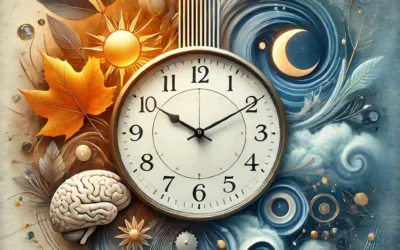In previous articles, we have discussed how bipolar disorder manifests, what it entails, what the options for medication and non-medication treatment are, and who to contact.
In the next few posts, we will dive into personal experiences with this illness. The two women living with bipolar disorder profiled in these interviews provided an honest look into their lives with their condition. While both follow their medical plan, they are also involved in a research study by the National Institute of Mental Health and Mindpax. The study uses digital technology and psychoeducation and focuses on the long-term management of this illness.
For this interview, both women wish to remain anonymous and will go by fictitious names.
The first interview we will present is with Carmen, who was willing to share with us what her life with the bipolar disorder (BD) is like and how it manifests for her.
What does bipolar disorder mean to you?
That’s a tough question. In a nutshell, bipolar disorder is a terrible burden in my life.
How does bipolar disorder manifest in you?
Usually, I experience mood swings. It evolves into a severe depression that lasts more prolonged periods. On the other side, hypomania is much shorter compared to the depressive part.
What does depression look like to you? How do you recognize it?
For me, the first sign of depression is usually exhaustion. I have trouble remembering things, and my memory does not work well. Furthermore, I lack energy, have no interest in life, and most of the time, I just feel like being in my bed.
Do you remember your first depressive episode? How did you know it was depression?
I remember I experienced my first depression in 2012. It lasted about three weeks. I was exhausted, sad, depressed, and anxious. It was a long time ago, and it’s hard for me to remember these things. I felt a massive responsibility for everyone around me. My kids were young, and my relationship with my husband wasn’t working well. Our relationship lacked harmony. I felt alone in my everyday life while still trying to pursue my hobbies. These aspects together led to total exhaustion, and depression set in. I knew I couldn’t go on like this and sought an outpatient doctor and then was hospitalised for fourteen days.
How many times have you been depressed?
I’m sure it was about fifteen to twenty times. I experience far more depression than hypomanic episodes. Lately, my phases have been switching so quickly. I used to have a relapse once every six months. Now, it’s once every two months. I also notice that depressive episodes, in particular, are more intense. Any other depression that comes along is worse.
Do you see any negatives to the depressive phase?
Yes, I do, and they are huge. To be fair, I believe it is limiting for everyone involved in my life. It affects me, my relatives, my children, my ex-husband, and my current partner.
How do you recognize manic or hypomanic states?
I only have hypomanic states. I have only been manic once when I was hospitalised for three weeks. I recognize a hypomanic state when I don’t want to sleep much. I feel like I don’t need it. On top of that, I get easily distracted and have a lot of drive, energy, and plans. I’m also sensitive to the moon’s phases. For example, I don’t need to sleep at full moon, which can trigger hypomania. On the contrary, the manic state, which I’ve only experienced once, was different. I felt like I could do, feel and perceive things others could not. Apart from many other things, I saw different patterns in the sky. Eventually, the doctors concluded it was a mania with psychotic symptoms.
For a description of bipolar disorder and an explanation of psychotic symptoms, see the published article – How does bipolar disorder look?
How many times in your life have you experienced hypomania or mania?
Well, I think around ten times in the last five years or so.
Do you perceive any negatives to a hypomanic or manic state?
Indeed, sooner or later, it is complete exhaustion of the organism, and it usually ends up in depressive states.
Have you ever experienced a stable state? It is meant as a period without depression, hypomania, or mania symptoms.
I have to say that a stable state is challenging to recognize. Especially when a depressive episode ends, it is difficult to distinguish whether it is a symptomless state or the beginning of a hypomanic episode. Around four days ago, I was discharged after three weeks of hospitalisation for depression. After several years, I feel like I am experiencing this symptomless state. I feel stable, calm, thoughtful, and relaxed.
Do you see a connection between sleep, activity, and bipolar disorder?
Yes, I see that a lot. Sleep is crucial to me. In a stable state, it’s ideal for me to sleep for around seven to eight hours. I go to bed regularly after taking my evening medication, which I take at nine, and fall asleep around 9.30 pm. I wake up around 5, or 6 am and I can still enjoy the morning. It feels lovely to experience simple things such as sunrise or singing birds in the morning.
How different are your sleeping habits and activities in depressive or manic states compared to your stable periods?
In depression, I sleep a lot. Usually, it’s about twelve to twenty hours a day. In mania, on the other hand, I don’t need sleep at all. There have been weeks when I haven’t slept at all. I would go on, and sleep just seemed like a waste of time. I get about seven to seven and half hours of sleep during stable periods.
Are there any warning signs for you that signal depression or hypomania is coming?
The most noticeable sign is fatigue. That feeling is present in both phases. It is usually a warning sign for me. The exhaustion is either from the lack of sleep in hypomania or the depression itself.
Carmen told us her story about her daily life with bipolar disorder. In the interview, she describes how it affects her and those around her. Like other people, Carmen has been treated for this condition for several years. In the following article, we will give you a glimpse of her experience with medical care and how she perceives help from professionals.



